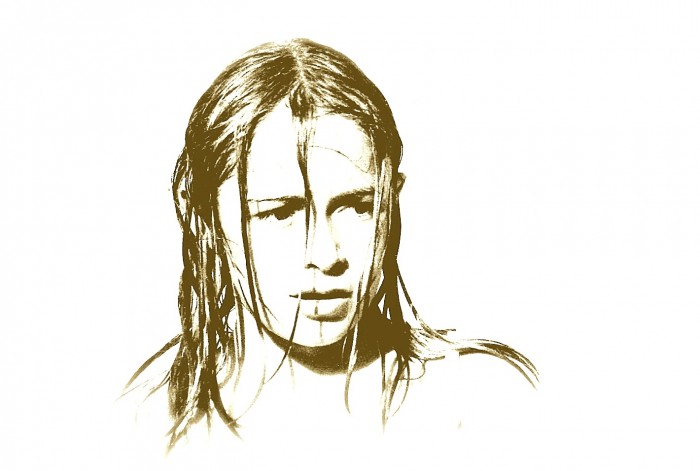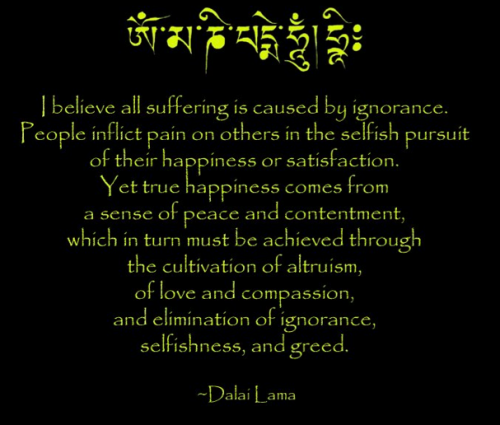The below represents the author’s personal opinion, view or experience, and can not necessarily reflect this blog site as a whole.
On fame, pedophilia and power addiction: a new way to understand love.
Power can be a powerful addiction.
Many of the world leaders, the famous, gurus and most successful businesspeople have this addiction to power…in common with sex offenders and killers.
Though many stories are shocking, my early life experience in my home country was extreme. For five years I was sex-trafficked by politicians, business elite and aristocrats who provided their castles for orgies. I was used as a business negotiation prop or for political favors while my family accepted money to drive me wherever needed.
There were never more than a few children. We were valuable currency, until we were considered a threat—then we were eliminated.
My turn came when I was 11, after getting singled out by a gangster for some time and then dropped. When my torture began, he had a change of heart and struck a deal with the bosses for my life. He released me and gave me a long list of precise instructions that were to ensure my continued survival.
One of my survival mechanisms had been to relax all muscles that weren’t needed during abuse, sort of an automatic mental analgesic with the unconscious intention to minimize pain, which also resulted in the body’s ability to experience pleasure, rendering my sense of shame intolerable, even as the good feeling was a nurturing substitute.
This sensuality carried over into adulthood, with stress-free facial features and a still demeanor—unnatural calm covering a crater of shame and self-hatred.
Seven years after my rescue, when I was 18, a famous actor told me that I, too, could be famous.
I was already used to being a valuable commodity, and had discovered by playing the power game to stay alive that I liked the game—I was good at it—but the survival instructions I lived by included staying invisible, like a gangster…to keep my secret safe.
I turned down an offer to meet with a big French film director and hid behind menial jobs in big cities like London and Paris, feeling unworthy of earning a living, or even of being alive.
With an ego as damaged as mine, with love so lacking from the adults of my childhood, I wanted—like they had when they had abused me—to feel powerful.
I continued to turn away from every opportunity, instead experiencing the painfully uncomfortable feelings hiding behind the pleasurable power high: insecurity, low self-esteem, shame, humiliation…continually re-living the frustrations of the past. This was masochistic self-imposed torture on the one hand, and the source of all healing on the other. I could observe and analyze the confluence of emotional and factual reality, link it back the original trauma, become aware, and grieve.
Reconnecting and integrating these dissociated parts created consciousness expansion.
By not acting on my desire for power, I got a look at the other side, and began to gain insight into how perception of power and powerlessness plays into relationships, crime and fame, and that was more important than power.
The power high can create a temporary escape for those who were repeatedly made to feel powerless in their early years—children who were denied their most innocent impulses, were constantly frustrated in their needs and desires, whose childhood freedom was robbed by emotional, physical or sexual abuse.
The symptoms of addiction are the same, except power addicts need other people to admire, desire, and/or fear them to get high; this is why sex addiction is also the same: the primal motive behind sexual conquest or assault is to feel powerful.
The fundamental motive behind all addictions, including power addiction, is to feel freedom.
But freedom from what?
In my experience, I’ve sought to be freed from the shame that wiped out my innocence.
A newborn baby needs a loving reflection from its father and mother figure and needs to be seen as innocent.
I didn’t get this, so I grew up emotionally stuck in that early phase of life. I kept the baby’s tools to try to get that need met, remaining excessively mentally pliable, open to absorb and take on whatever people saw in me.
Men’s sensual thoughts, for example, of beauty or grace, instantaneously manifested in my psyche, altered my energy and even my physique. I felt a certain pleasant vibration, different according to the person, and stronger when many people thought of me at the same time—not unlike a morphine high.
Power addicts are attached to positive projections. Admirers, followers, lovers, fans and in the case of pedophiles, the child victims, are parental substitutes, unwittingly providing the necessary fuel for this addiction.
By being thought of as powerful, different, special, more attractive, bigger or better, power addicts adopt those projections and use them as nurturing substance, feeding the damaged infant inside, which can be experienced as emptiness or a sort of black hole if the person has no connection to that inner part.
The power game lies in keeping one’s own negative thoughts secret while warding off negative projections and using positive ones to maximum advantage, so obtaining the feeling of innocence through calculating and exploitative means.
As with any addiction, when the disease advances, those secret thoughts of feeling like a fake or feeling worthless become hidden to the addict himself, who at that point actually believes that he is the sum total of those projected qualities, and loses touch with his innate ability to tell right from wrong.
Without emotional connection to the self, it can feel as though nothing were real, as if everything were a game to be won at all cost to prove one’s self-worth. When the world is a playground and people are pawns, the ego acts like a god. The charm of certain psychopaths or of very successful people lies in their otherworldly confidence.
Since the world loves power, no temptation is greater. An alcoholic can get support from others who understand exactly how he feels and why it is so important not to have that one drink.
Power addicts have no support groups; there is little awareness of this addiction. Recovery can only begin once the addict acknowledges he is powerless (over his addiction)—and this happens to be the greatest fear of this particular group.
During my six years as a sex slave, I was raped by hundreds of adult men.
Though I experienced severe splitting and was often given drugs and alcohol, a part of me always observed.
The men were intoxicated. Drugs and alcohol are the perfect catalyst for the unleashing of repressed parts. Abusers experience blackouts, whether or not they are drunk at the time of the abuse.
Some pedophiles are loners, uncomfortable around adults, addicted to child pornography and trying to make physical connections with children through the internet, but just as often they are adept at “grooming;” the manipulative process of ingratiating oneself in a family or community to win trust, to get to the children and win their trust, preparing them for the abuse.
Pedophiles emotionally identify with children, which is why they are often so good at attracting them. They can appear mature, wise, be extremely gifted, funny and clever, but they are emotionally stuck in childhood, have no self-esteem, and most important: they don’t see the child in the child. They often only see parts of themselves they’ve lost—innocence mostly—and are obsessively drawn to those particular aspects in an unconscious attempt to fill the emptiness they feel inside.
They often act like hurt children, which can make them appear revolting, or the opposite: so innocent and charming that not everyone believes their victims if and when they speak out.
Pedophiles don’t know how they became what they are and offer few clues for others to figure them out, but since they see a part of themselves in the children they abuse—a part that has been split off from their consciousness—it makes sense to question what happened in their own childhood, particularly around the age of the children to whom they are drawn.
They are compelled to mold the child into their own solipsistic world-view. That process of transformation, from a lively, innocent child to one deadened by fear and trauma, is the abuse itself.
They turn children into emotional zombies, which is what they are: empty shells.
Many are weighted down by constant pressure from a negative inner voice, judging and self-loathing, the internalized voice of a parental figure from their own past when they were not properly loved, and they were used. During the abuse that voice is momentarily silenced, or rather, it is directed at the new victim, and it justifies the act.
The transgression may appear to occur as if out of time, as though it weren’t actually happening. The adults often aren’t present at all; they’re in a zone.
The children will likely be attuned—as prey and predators are—and take on the perpetrator’s minimization and rationalizations and zone out to help themselves get through.
Sometimes the abuse can be forgotten even as it happens, so it never even enters the conscious mind!
What does happen is that the victim is left with a sense that they’re “bad.”
The shame lasts, and without outside help or support, the resistance to feeling that shame can overshadow that victim’s whole life.
In adulthood, survival mechanisms will outlive their usefulness, but are sometimes given new life in the cycle of abuse, when a victim becomes a perpetrator: consciousness splits, the old lie (that they are bad) takes a twist; this time the victim is the abuser, feeling that they are “good,” stealing back the innocence stolen from them, finally able to give free rein to their sense of victimization, while the new victim is attributed the “badness.”
My parent used to punish me with the words “I’m going to take you there again, ” high on the power of revenge. My parent would drive me, usually on weekend nights, sometimes during school days, wherever ordered. Usually, I would find their car parked outside at dawn, to be driven back home, deadened and bruised.
I found out from my perpetrators that my “guardian” was getting paid just like the other pimps.
As an adult I confronted X in writing. X wrote back: “I wouldn’t do this,” and “I thought I was taking you to sleepovers.” As long as I can remember, X thought of X as all good; a means to survive regular life.
Pedophiles often strongly protect hypocritical parents’ unconscious selfish need to be viewed as good (a tract often blindly followed by law enforcement or journalists who interview the seemingly benign parents), and they will more easily express remorse about failing their parents rather than harming their victims.
With an emotional blueprint of devastation, pedophiles pass along the same humiliation that dehumanized them, and will be compelled to do so until the time they will begin to turn their anger onto their perpetrators.
Humiliation is the sense of being powerless mixed with overwhelming fear and shame. Humiliation is perhaps the most difficult emotion: it is experienced during abuse, why it is so hard to be abused, and why it is so hard to heal from abuse.
Yet humiliation is everywhere. Both bullies and pedophiles are trying to stay on the other side of their own humiliations by shaming their victim.
Abuse is an unconscious rebellion against the unfairness of having been forced to take on shame that belongs with someone of the past, not with the victim of the present.
There are teachers who shame their pupils, gurus who shame students, bosses who shame their employees, parents who shame their children, men who shame women, correctional officers who shame prisoners, women who shame women, husbands who shame their wives, wives who shame their husbands, nannies who shame their charges, police who shame citizens, adults who shame children, politicians who shame politicians, and some people just shame everyone. Everyone has been on both sides of shame, and the natural reaction of being on the receiving end is to bottle up the anger until it can be vented, once one is in power.
The greater the humiliations, the greater the thirst for power.
Power is driven by anger.
Most people project much onto the strangers that seem so familiar through media exposure. When a famous person appears, the group energy changes to the palpable excitement of expectation. The public loves the star, but admiring stars is not as innocent as it seems.
Much of what we call love is fear-based projection, an emotional remnant of trying to please a shaming parent or abuser of the past, and behind the need to please the authority lies anger and desire for revenge for not having been treated properly.
Most people have the same emotional issue underlying attachment to power as power addicts, since everyone has had at least a taste of being on the receiving end of abuse of power.
Insofar as frustration over past abuse or humiliations is hiding inside, it compels one to participate in the cycle.
As soon as power is projected onto another human being, personal responsibility is abdicated, and the victim-mentality (the idea of innocence) is assumed. The adult in the role of the child unconsciously positions him or herself to strike out and stage a personal coup d’etat.
Protective love, like the kind felt for hypocritical parents and famous people, covers over suppressed anger.
Victim-identification is the single pre-requisite for causing harm: it serves to justify the deed.
Every criminal feels innocent in the act. Without temporary or continual justification he could not bring himself to do harm.
Justification rouses motivation.
The high of power felt by an abuser comes from the innocence felt while all responsibility is temporarily waylaid, creating the idea of freedom—the way a baby feels when it is loved.
The public only engages in the first phase of the power cycle when positive, loving thoughts are projected onto a power figure.
The first, or love stage of projection, represents the surface emotions expressed to a scary authority figure of the past. These positive emotions are unconsciously fed to gurus, the rich and famous, and when people fall in love, to the love object.
Negative thoughts are split off and directed onto figures without power, such as prisoners, or anyone lower on the totem pole assigned the role of the child – outward representations of the unloved child inside.
In the love cycle, once the honeymoon stage is over, the love object becomes a receptacle for repressed negative emotions.
The dark side of the cycle brings about stand-in figures for the hurtful parent no one wants to remember. Two sides of the same parental figure are projected onto different people, or one love object is treated as two different people at different times.
The public unconsciously partakes in the vicious cycle of power by each member’s own small version of the same problem.
Everyone feels like the victim sometimes.
The only difference between criminals and most of us is the lengths to which the criminal has to go to feel innocent, the degree to which he has to abdicate personal responsibility to make up for emotional deprivation.
The power game never ends and leaves one feeling empty; like other drugs it doesn’t give the love and nurturing that are truly needed.
The hardest thing about love is not that it isn’t there—it’s that with broken self-esteem it is impossible to recognize or accept.
All the criminals of my past and many of the powerful people I’ve met are simply too emotionally damaged to discriminate, and can never truly feel loved.
Stuck in a mental template of exploitation, it becomes impossible to recognize a genuine gesture of kindness or a simple smile: everything is either buying or selling; innocence is dead.
A child needs to receive some unconditional love to have an emotional blueprint to know what it feels like to be innocent and lovable.
The trick is to let the love in, because only love heals. Love really is all you need. I don’t know what makes or breaks a person when it comes to the ability to feel it. For me, a caretaker who loved me in the first three years of my life made all the difference.
I currently work in prisons, teaching yoga, meditation and mindfulness.
The Buddhist creed and message of all religions, to serve those in need — karma yoga — is so incredibly rewarding, because it provides a connection with the powerless child inside, and gives it the love and attention it craves.
I have found mindfulness the most powerful tool to break through isolation. When I can be fully present for someone, just to feel what he or she feels without trying to change anything, something seems to change.
I went into the prisons to give and instead found that I was receiving. It’s not necessary to be a compassionate being to do service – it’s the opposite: service facilitates acceptance of love, which creates compassion.
Of course, many power addicts are doomed to roam an entire lifetime through the galleries of the lost souls. The one common denominator for all psychopathic criminals, famous pedophiles, alcoholics who won’t stop drinking, gurus blissed out from the power high, hypocrites clinging to their image of “good,” the one percent, and all those on the outer fringes of society, is a deep sense of victimization and loneliness.
Everyone who has had the great good fortune to know unconditional love and is capable of making meaningful connections can try to be mindful, look inside and observe power relations.
Who gets placed higher up and who gets put down in the mind’s eye?
It’s important to come out of denial and look at what pedophiles do, even if it’s nauseating, even if we thought of them as wonderful people.
Understanding comes by looking inward—not outward at particular cases or scandals.
It’s possible to stop feeding power to the powerful, see beyond appearances, and cast a more maternal gaze on the soul-dead. They need our understanding. We are not victims. We are one.
Love elephant and want to go steady?
Sign up for our (curated) daily and weekly newsletters!
Editor: Catherine Monkman
Photos: elephant journal archives, author’s own.
This Blog does not Represent the Opinions of Elephant as a Whole, nor Can It. Disagree with this Op-Ed or opinion? We would be honored to share your own experience or rebuttal, here. If you are offering a rebuttal, please say so in notes, and we will give it priority.
That said, we are honored to host this and all points of view. elephant takes our responsibility as a responsible, thoughtful, honest community forum seriously, and is always happy to make corrections or even take an article down as need be.
elephant is proud to represent a diverse community. We are reader-created: as such we welcome many points of view. Many blogs here are opinion and not fact, views and experiences rather than The One Right Point of View. Therefore, we welcome different points of view, especially when offered with more sources and less invective, more frankness and less PR.Dislike this Op-Ed or opinion? Share your own take here.






Read 21 comments and reply